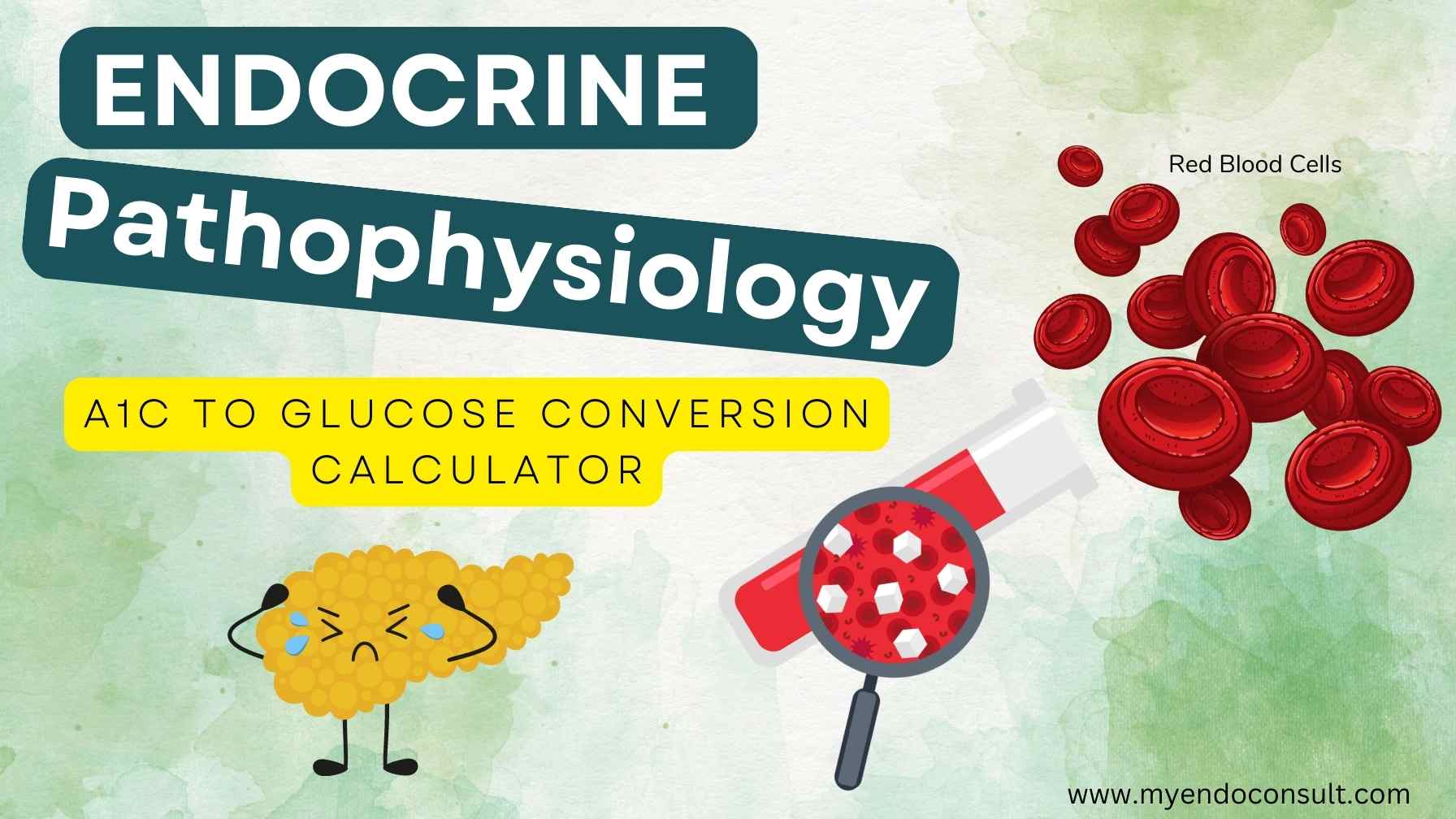
This clinical decision support tool offers a quick means for converting average glucose readings into glycated hemoglobin A1C values. Glycemic goals are individualized and based on a patient’s duration of diabetes mellitus, medical comorbidities, psychosocial stressors and life expectancy.
A calculator for estimating A1C based on average glucose
Enter the average glucose value in mg/dl. Review the estimated A1C in the output field
A calculator for estimating A1C based on average glucose
Enter the A1C value. Review estimated average glucose in the output field
Average glucose and A1C conversion chart (table)
| Blood sugar level (mg/dL) | Estimated A1C level |
| 97 | 5% |
| 126 | 6% |
| 154 | 7% |
| 183 | 8% |
| 212 | 9% |
| 240 | 10% |
| 269 | 11% |
| 298 | 12% |
| 326 | 13% |
| 355 | 14% |
What is Glycated hemoglobin A1C?
Glycated hemoglobin (hemoglobin A1C, HbA1c, glycated hemoglobin A1C, A1C, or glycohemoglobin) is a form of hemoglobin test that reflects the average plasma glucose concentration over the preceding two to three months. Glycated hemoglobin is formed in a non-enzymatic glycation pathway by the binding of glucose with the N-terminal valine residue on the β-chain of hemoglobin. The amount of glycated hemoglobin (HbA1c) in the blood provides information on average blood glucose control over time.
Advantages of A1C over other forms of glucose assessment.
A1C is a more accurate measure of blood sugar control than fasting blood glucose. The reason for this is that A1C measures the average amount of sugar over the past 2 to 3 months. This means it can pick up on fluctuations in your blood sugar that occur between meals and overnight, whereas fasting blood glucose only shows you how high your level was when you ate nothing at all.
A1C is also a better predictor of diabetes complications than fasting blood glucose. The higher your A1C level, the greater your risk of developing complications such as heart disease and kidney problems.
Kindly Let Us Know If This Was helpful? Thank You!


